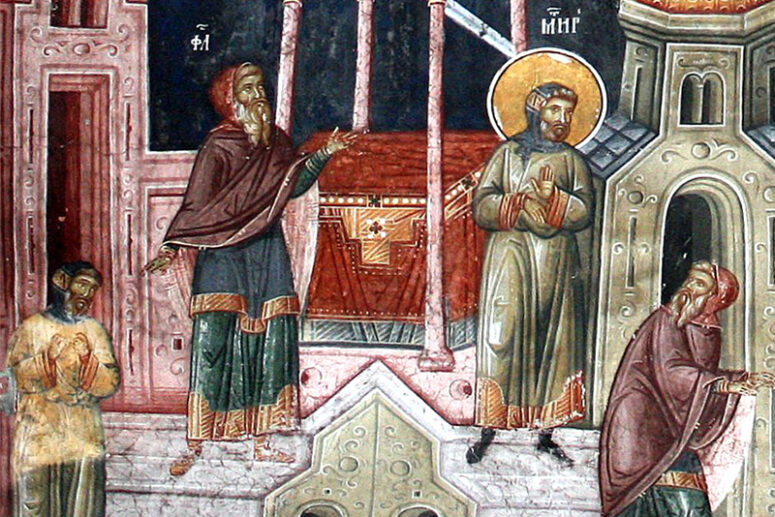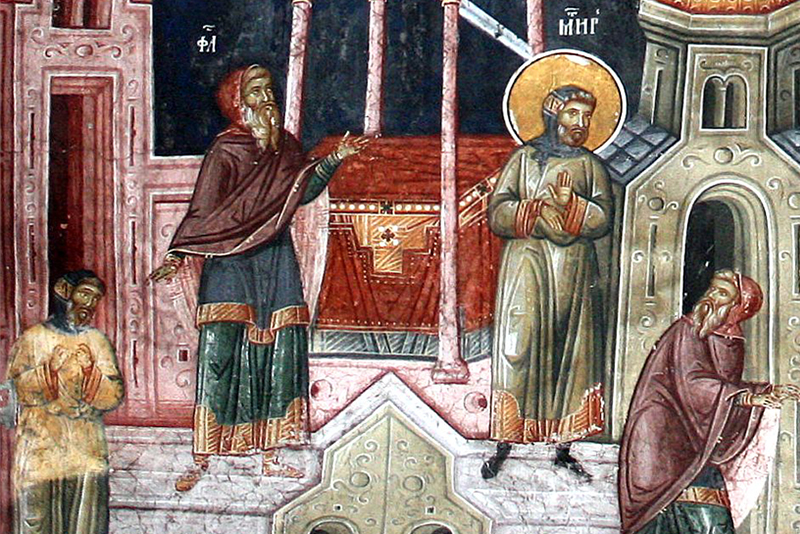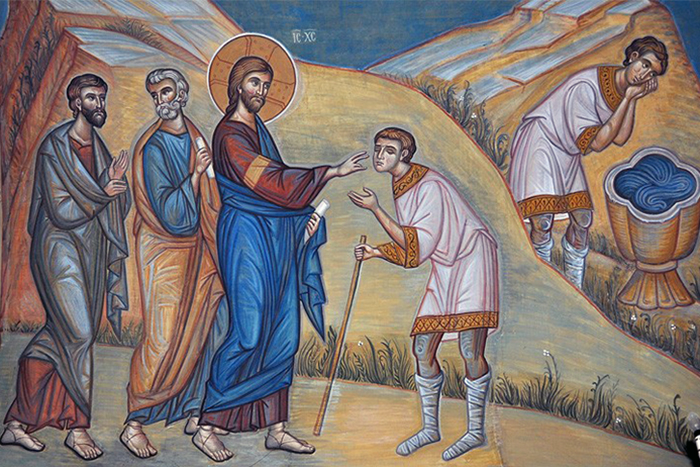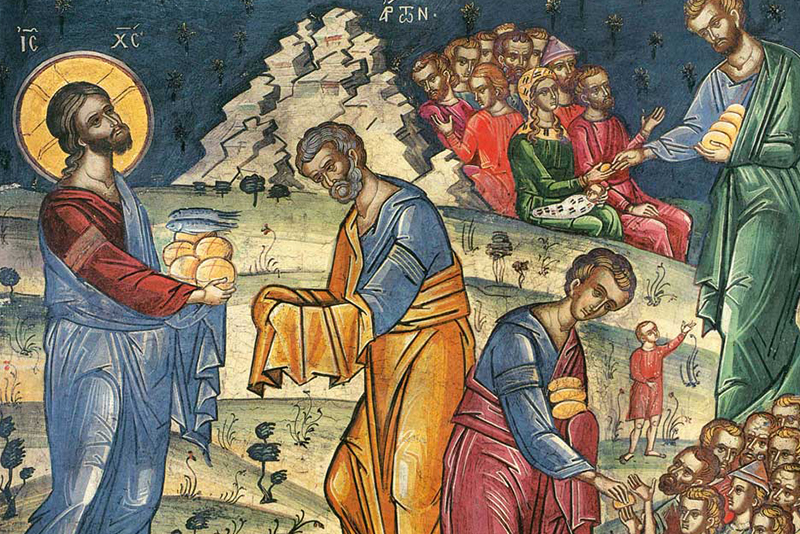
Everyone knows the parable of the publican and the Pharisee. For us, modern readers, the publican is a “good guy”, while the Pharisee is obviously “bad”. We view Pharisees as proud, arrogant, soulless religious formalists, considering publicans humble people, of whom the Lord justly approves. All of this is obvious to us. It was not so however with the contemporaries of the Lord Jesus, whom this parable probably resented and offended.
In the times of the Gospel, the situation was just the opposite. Pharisees were good people, in fact, the best people in the nation. They were the most religiously active part of the Israelites. They carefully studied the divinely revealed Law of Moses in order to implement it in every detail. What seems to us as stupid pettiness was in fact a desire to do everything right, so that everything in life, including work, rest, trade and cooking, was in agreement with the Law of God. The Pharisees loved the law and sought to teach it to the people.
In the meantime, publicans really were people with dead morals. It is clear that a publican is a tax collector, but today in order to understand the negative meaning of this word we should also know that in ancient times, publicans were charged with a duty to provide a certain amount for the treasury, while their own reward was everything extra that they were able squeeze out of people. Publicans were known for most gross and cruel abuses.
The word “publican” was a synonym for a shameless and heartless extortionist, easily taking away someone’s last piece of bread. In addition, publicans worked for the hated pagan invaders, the Romans. They were both morally and religiously defiled people, the exact opposite of the Pharisees. How is it that the publican goes to his house “justified rather than the other”?
Isn’t that outrageous and immoral? How can God prefer an outright scoundrel to an honest, moral and deeply religious person? Such a question certainly arose among the Lord’s listeners and many others, both Jews and Gentiles. Celsus, the most famous of the ancient critics of Christianity, wrote, “According to their teaching, God will accept a wicked person if he humbles himself under the weight of a disaster, and yet, He will not accept a righteous one who already possesses virtue from the very beginning and turns his gaze upward!”
This question is still being asked. “If a decent and honest person died in a non-repentant state like this, would he be deprived of the Kingdom, while some scoundrel and thief repented, believed and would be saved? Why in the world is this so? This is too bitter!”
We are all sinners and have no other hope than the mercy of God. Those who lead a clearly immoral and shameful life, and those whom society views as moral and religious people, are sinful and in need of salvation. This is easier to understand for those whose lives are clearly vicious.
There are many stories in the lives of saints about robbers, thieves, prostitutes and all kinds of outcasts, touched by the grace of God. At some point they saw their lives with horror, disgust and indignation and rushed to God, seeking salvation. Now the Church honors them as great saints.
Sometimes a person reaches the very bottom before he turns to salvation. I know people who were alcoholics and drug addicts when it became piercingly clear to them that in a few more days, or maybe hours, they would die in the gutter. Then they cried out to God for mercy and they found it.
The trouble with the Pharisee is that everything is alright with him, at least in his eyes. Yes, this Publican is an example of moral decline, while the Pharisee is a good person who knows about it. Instead of seeking the mercy of God, he seeks recognition of his merits. However, the truth is that being a respected member of society, he remains a miserable sinner before God. The prophet Isaiah, a moral, deeply religious man, having experienced a vision of God in the Temple, exclaimed, “Woe is me! I am lost, for I am a man of unclean lips, and I live among a people of unclean lips; yet my eyes have seen the King, the Lord of hosts!” (Isaiah 6:5)
The Lord says in Revelation, “For you say, ‘I am rich, I have prospered, and I need nothing.’ You do not realize that you are wretched, pitiable, poor, blind, and naked” (Rev. 3:17).
When we become similar to the Pharisee, trying to enumerate our merits and making ourselves look better than others, we close ourselves off from the grace of God. When we come to the Lord, as we are – poor, blind naked, guilty and wicked – and reveal our sins to Him, we receive mercy and forgiveness. We find ourselves accepted, loved, forgiven and comforted; and we see that the foolish pretense of self-righteousness should have long been abandoned.
Translated by The Catalogue of Good Deeds
Source: https://pravlife.org/ru/content/sergey-hudiev-uteshenie-nepravednyh




